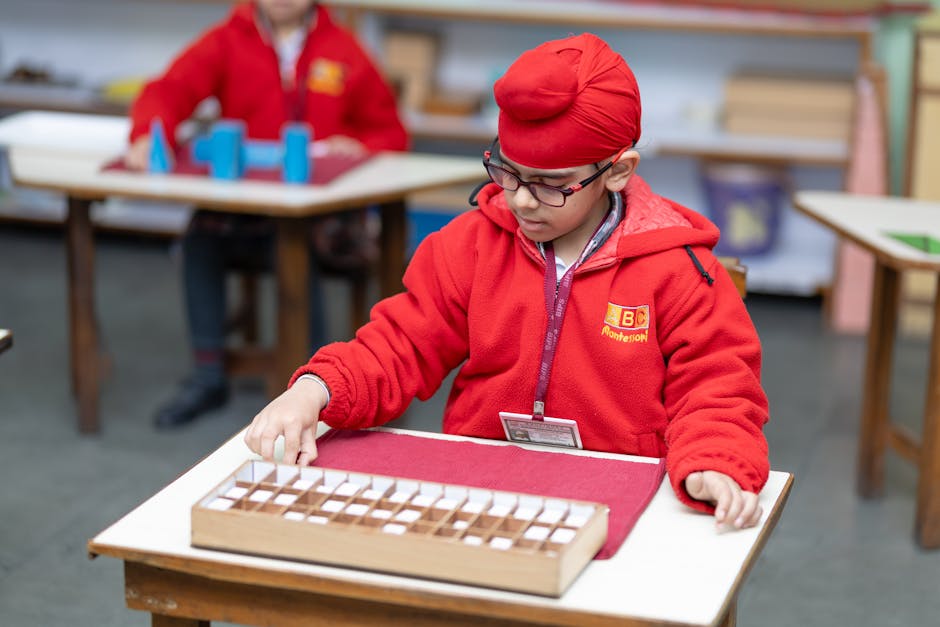The Importance of Play in Early Childhood Development
The Importance of Play in Early Childhood Development
Blog Article

Play is often seen as a simple pastime for children, but it is far more than just entertainment. The concept of "Learning Through Play" recognizes that play is a vital component of childhood development, serving as a powerful tool for education. Engaging in play allows children to explore their creativity, develop important social skills, and enhance cognitive abilities. This article delves into the significance of play in early childhood development, the various types of play and their educational benefits, and practical strategies for implementing learning through play in both classroom and home settings.
The Importance of Play in Early Childhood Development
Play is essential for the holistic development of children. It fosters emotional, social, and cognitive growth, allowing children to navigate their world in a safe and supportive environment. When children engage in play, they learn to express their emotions, understand social dynamics, and develop problem-solving skills. These fundamental experiences lay the groundwork for their future learning and interpersonal relationships.
Emotionally, play helps children process their feelings and experiences. By role-playing different scenarios, they can explore complex emotions like joy, fear, and empathy. Socially, play encourages cooperation, negotiation, and conflict resolution. Children learn to work together, share resources, and respect each other's perspectives. Cognitively, play stimulates critical thinking and creativity, allowing children to experiment with ideas and concepts in a hands-on manner.
Different Types of Play and Their Educational Benefits
There are several types of play, each offering unique educational benefits. Understanding these types can help educators and parents leverage them effectively to support learning.
Imaginative Play
Imaginative play, also known as pretend play, allows children to create scenarios and assume different roles. This type of play enhances creativity and helps children understand the world around them. For instance, when children play house or act out stories, they practice social roles, develop empathy, and enhance their language skills. The benefits of learning through play are particularly evident as children narrate their actions, expanding their vocabulary and communication abilities.
Constructive Play
Constructive play involves building, creating, and manipulating objects. This can include activities such as block building, crafting, or assembling puzzles. Such play enhances spatial awareness, fine motor skills, and problem-solving abilities. As children manipulate materials to create structures or solve challenges, they learn about cause and effect and develop critical thinking skills. The tactile experience of constructing also reinforces sensory development, which is crucial in early learning.
Physical Play
Physical play includes activities that promote movement, such as running, jumping, and climbing. Engaging in physical play is essential for developing gross motor skills and overall physical health. It also supports social interaction and teamwork when children play games that require cooperation. As they navigate physical challenges, children build confidence and resilience, crucial traits for lifelong learning.
Practical Strategies for Implementing Learning Through Play in the Classroom
Incorporating learning through play in educational settings can be deeply rewarding. Here are some practical strategies for educators and parents alike:
- Create a Play-Friendly Environment: Design spaces that encourage exploration and creativity. Include diverse materials such as art supplies, building blocks, and costumes to inspire imaginative play.
- Integrate Play into Learning Objectives: Align play activities with educational goals. For instance, use role-playing to explore historical events or scientific concepts, making learning engaging and relevant.
- Encourage Child-Led Play: Allow children to take the lead in their play experiences. This autonomy fosters critical thinking and decision-making skills. By following their interests, educators can guide learning in a direction that captivates young minds.
- Assess Learning Through Observation: Observe children during play to gain insights into their developmental progress. This assessment can inform future activities and help tailor educational approaches to meet individual needs.
In conclusion, "Learning Through Play" is a powerful approach that nurtures children's emotional, social, and cognitive development. By recognizing the importance of play and implementing strategies that support it, educators and parents can create enriching environments that foster lifelong learning. To explore more about effective practices in early childhood education and the benefits of learning through play, check out resources available at Chrysalis Preschool.
Report this page